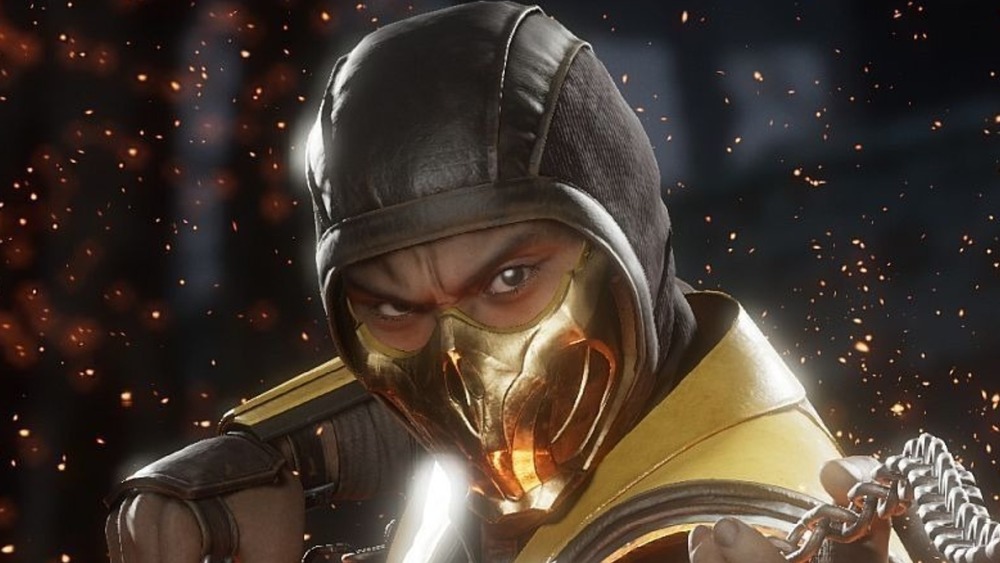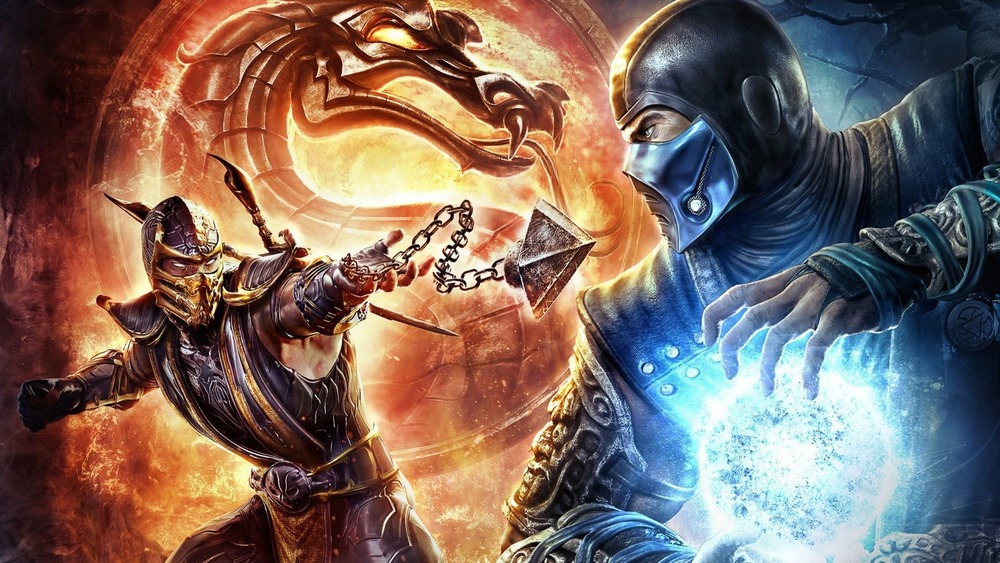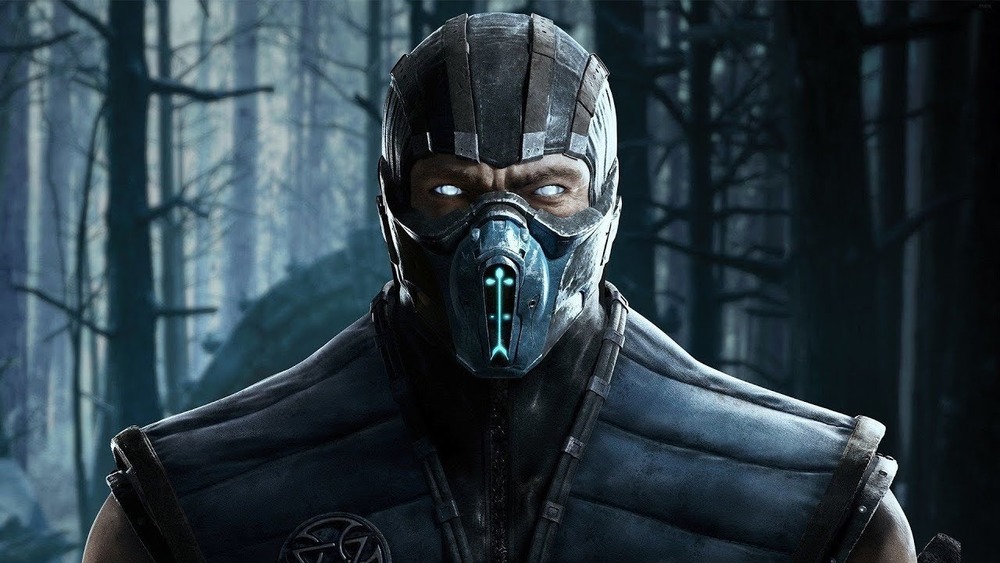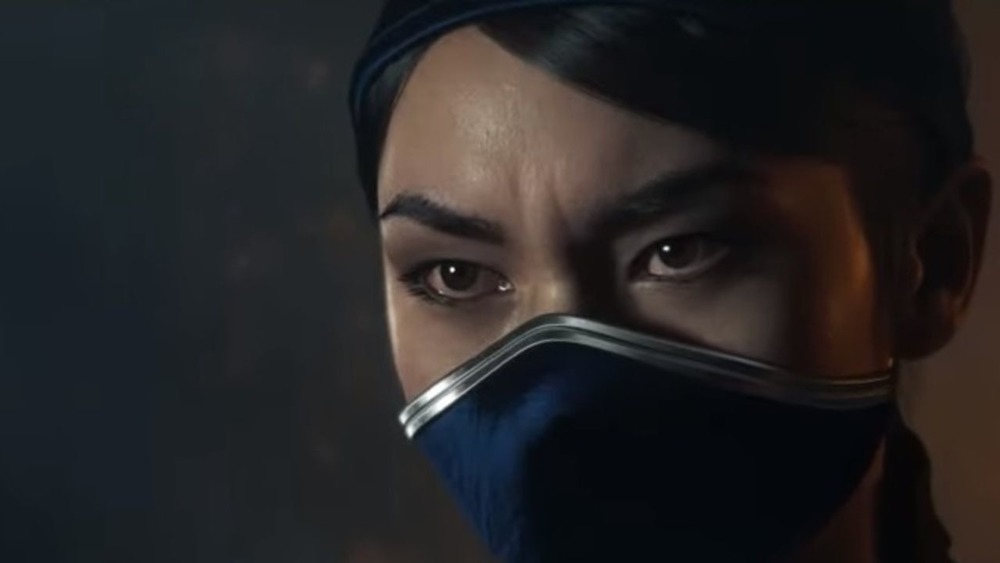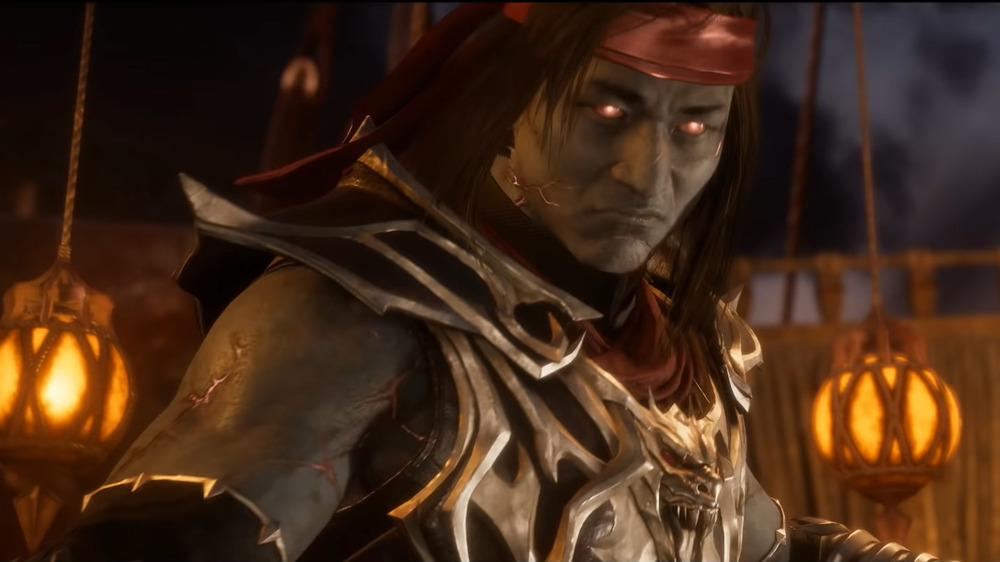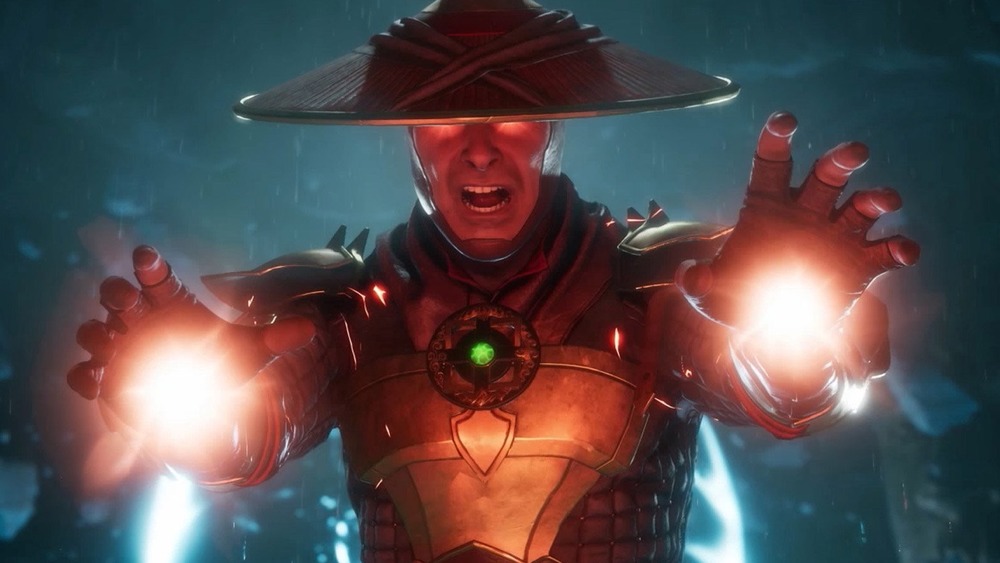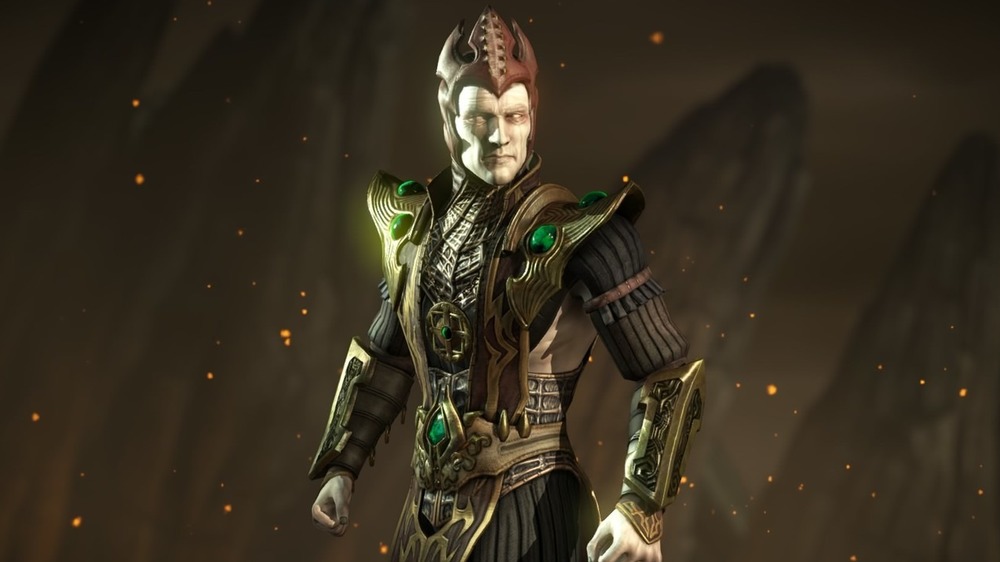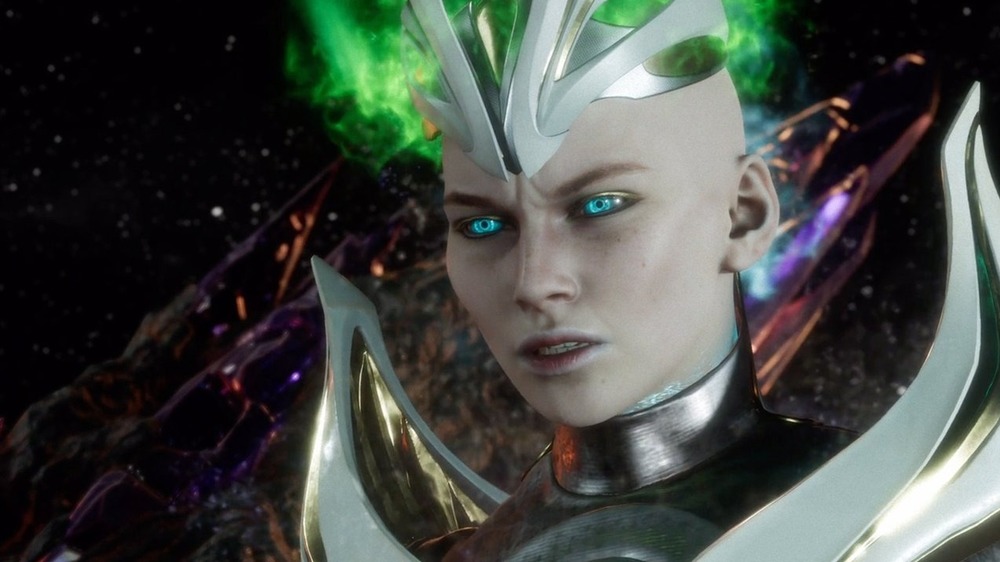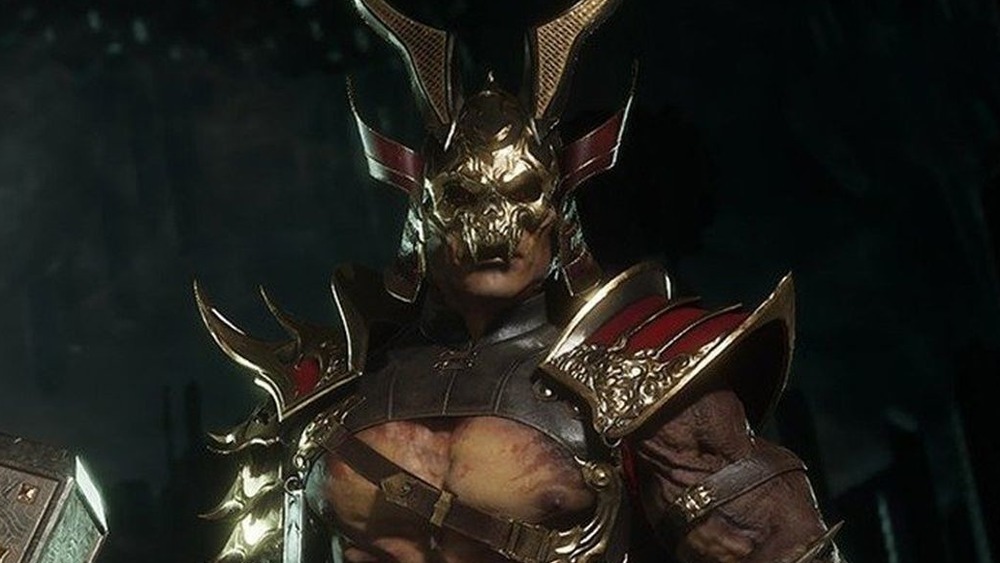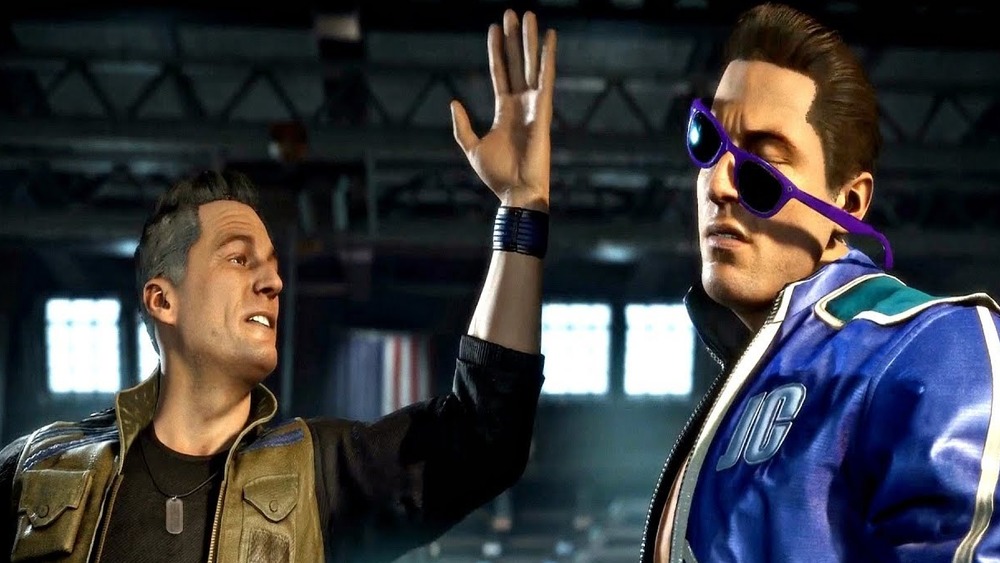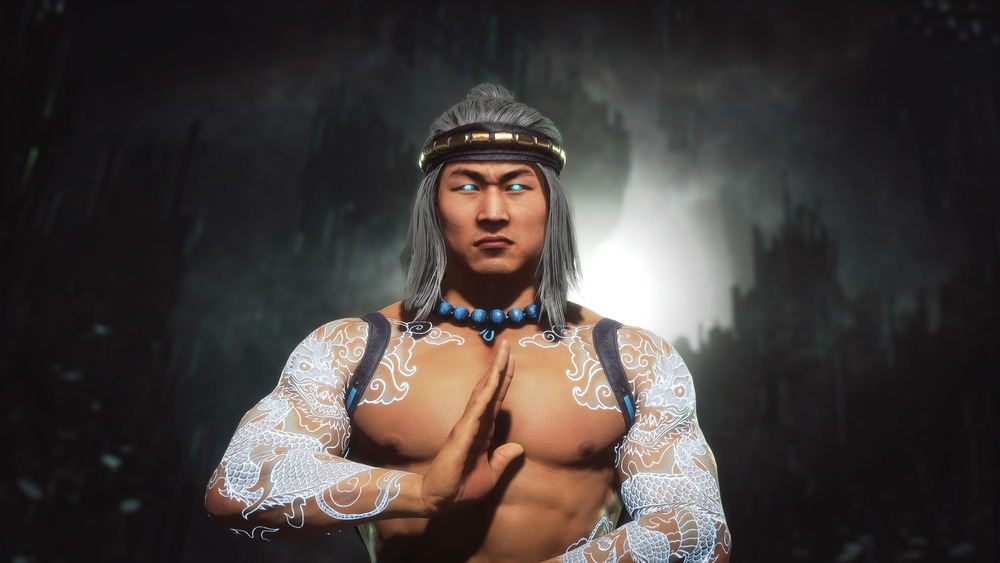The Mythology Of Mortal Kombat Explained
Mortal Kombat is notorious for its over-the-top depictions of violence and gore, but over its 11 main installments, the series has developed a surprisingly deep body of lore. The series' storytelling centers around a life-and-death fighting tournament with overarching themes including competition, conquest, and comradery. But other features include a multi-tiered pantheon of deities, numerous dimensions, and time travel.
The franchise's emphasis on narrative and approach to storytelling have also evolved considerably throughout its near 30-year history, incorporating cinematics, interactive narrative sequences between fights, character-focused spin-off titles, and more to flesh out its world. Mortal Kombat has also become a transmedia juggernaut, featuring comics, an animated cartoon, and film adaptations.
Like DOOM and Grand Theft Auto, Mortal Kombat's writing is often overshadowed by the sensational qualities of its gameplay. But for all its controversies, Mortal Kombat has always been intensely self-aware, never missing an opportunity to poke fun at itself, or tease fans with made-up secret characters, inside jokes, and pop cultural references or crossovers.
This playfulness extends to the Mortal Kombat mythos as well. Fun is the franchise's guiding principle, and that is a narrative ethos that deserves more respect than it gets.
In the beginning...
Realms are the central feature of Mortal Kombat's cosmology. Similar to the magical planes of the Dungeons & Dragons or Magic: The Gathering universes, the realms are adjacent dimensions that are dominated and shaped by certain concepts, like chaos, order, art, and so on. These realms were originally brought into existence by the One Being; an entity of unfathomable power who was responsible for all of creation.
Earthrealm, which contains Earth and the surrounding solar system, is the focal point of the series. It is constantly defending against invasion from Outworld: a realm of strife and perpetual conflict that has already subsumed several other realms via conquest. The opposite of Outworld is Edenia, the realm of art, beauty, peace, and longevity.
There is also Orderrealm and Chaosrealm, which are planes dominated by the features of their respective alignments. The Netherrealm is an infinitely sized plane where the wicked are imprisoned and endlessly tormented after death. Its opposite, Heaven, is the realm where Gods and the righteous deceased reside.
The Tournament
The titular "Mortal Kombat" refers to a single-elimination martial arts tournament that is used to mediate disputes between realms. The tournament's rules state that if a realm can conquer another realm ten consecutive times, the victorious realm can consume and annex the defeated realm. The contenders consist of the most powerful warriors from their respective realm, and they may use any supernatural abilities, technological enhancements, or other weaponry to win.
These rules were dictated by the Elder Gods to limit warfare between realms. In Mortal Kombat and Mortal Kombat 2, it is stated that one realm overcoming another realm would unbalance the furies, weakening dimensional barriers. Though this mention of the furies is likely a nod to ancient Greek mythology, they have not been referenced or explained in subsequent games, and seem to be overshadowed by the importance of the Elder Gods thereafter. It is also possible that the furies are a reference to the '80s action film, Big Trouble in Little China, where the furies are forces that mediate the universe's stability.
The first Mortal Kombat tournament in Earthrealm was established by the evil sorcerer, Shang Tsung, who co-opted and corrupted an age-old Shaolin martial arts tournament.
Tech meets magic
What is interesting about Mortal Kombat's handling of fantasy and science fiction plot devices is that they are neither inherently opposed to one another, or two aspects of a whole, as is often the case with magic and technology dichotomies. Whether a character uses cybernetics or sorcery is mostly a matter of design flavor and background, rather than a single, unified "magic system" that governs the rules of the multiverse. For example, Jax – a human special forces operative – does battle with bionic arms. In contrast, Shang Tsung was once a normal human fighter who was cursed by the Elder Gods, and then learned magic from Shao Kahn.
The series draws from many traditions of magic. Quan Chi, who is a demon hailing from the Netherrealm, has the ability to resurrect characters as undead thralls. This is apt, as necromancy is not only culturally considered "black magic" or inherently evil, but in history has been viewed as a way to communicate with demons. Some characters have supernatural powers, like Liu Kang's ability to control fire, which are never explicitly explained.
Death isn't the end
Death is frequent in Mortal Kombat, but characters rarely stay dead. The game's lore states that evildoers are sentenced to torment in Netherrealm, and heroic souls go to heaven, but there are few hard and fast rules about what happens to a character when they die. Bodies and souls are distinct: Quan Chi, for example, resurrected Liu Kang's body after Shang Tsung killed him and drained his soul.
Shang Tsung also demonstrates that Kombatants can perpetually cheat death as well as reverse it. After he was cursed by the Elder Gods to age unnaturally rapidly, Shang Tsung learned to suck the life essence out of people, regaining his youth proportionately. In occidental vampire lore, this transfer of energy is symbolically represented by draining people's blood, though several types of Asian vampires, like Jiangshi, could sustain themselves using abstract sources of energy, like moonlight, or Qi — a person's life force.
Certain people who are very close to the deceased can also act as "soul anchors" for the departed. This concept is demonstrated by the role Sheeva played in the resurrection of Sindel.
Immortal Kombat
A wide variety of deities exist in the Mortal Kombat multiverse. Some characters are based on specific mythology, like the series' iconic Thunder God, Raiden, who is clearly based on the Shinto god Reijin. There are hints that the world's religions are based on interpretations of these figures, as well. Lucifer — the one of Judeo-Christian theology — canonically presided over Netherrealm and oversaw Shinnok's torture. Liu Kang is also a Shaolin monk and as such, a practitioner of Buddhism, though his faith does not factor into the story in a very pronounced way.
Intriguingly, there is a celestial hierarchy of sorts, in that certain deities can ascend, or descend in power. Shinnok is often referred to as a Fallen Elder God, even though he is still a member of the Elder Gods' as a species. Raiden undergoes even stranger transformations, starting out as a God, which, in Mortal Kombat's mythos, is the same thing as a demigod. Depending on the timeline, a God can either ascend to Elder Godhood, or descend from Godhood to become a human.
Elder Gods among us
The strict criteria for Elder Godhood is unclear, but the primary distinction between Gods and Elder Gods seems to be their relative power levels, and the point at which they came into being. The primary characters who interact with or represent the influence of the Elder Gods in Mortal Kombat's canon are Raiden and Shinnok. Cast down by the Elder Gods, Raiden, and other loyal deities, Shinnok serves as one of the series' arch-antagonists, desiring the destruction of all realms rather than dominion over them.
After defeating Shinnok a second time and ascending to Elder Godhood, Raiden bequeathed his title of Earthrealm's Protector to his young brother, Fujin. This, paired with the Elder Gods' condemnation of Shinnok's violence towards the realms, seems to imply that Elder Gods must maintain a degree of distance or impartiality toward specific realms.
It is worth noting, the turn of phrase "Elder God" is strongly linked to the fiction of H.P. Lovecraft and the Cthulhu mythos, specifically. Even though Elder Gods in Mortal Kombat do not typically resemble the tentacular, cosmic horrors of Lovecraft's writings, the term may have been specifically chosen to give the series more of a science-fictional flavor.
Titans and the One Being
There are only two entities higher than Elder Gods on Mortal Kombat's supernatural food chain: Titans and the One Being. The Titans, like Titans of Greek myth, predate all of the other deities, including the Elder Gods. They are second only to the One Being in terms of power. However, the Elder Gods and Titans collectively overthrew the One Being, and it is largely a non-entity in the game's storyline.
Like the other Elder Gods apart from the fallen Shinnok and ascended Raiden, very little is known about the Titans save for Kronika, Shinnok's mother and the main antagonist in Mortal Kombat 11. Kronika, dubbed the Keeper of Time, is the Architect of the Universe's destiny. As such, she can pluck people from the past, place them in the present, and erase entities from existence.
Even Titans can be physically killed, however, and despite her knowledge of time and destiny, Kronika is not omnipotent. At the end of Mortal Kombat 11, Kronika bolstered her immense inborn power by wearing a crown of all the souls Shang Tsung ever devoured, demonstrating that souls have significant power in the Mortal Kombat universe.
Armageddon prophesized
Long before the events of the first Mortal Kombat game, Delia — then the Queen of Edenia – prophesied that the tenth Mortal Kombat tournament would catalyze the apocalypse. Supposedly, the Kombatants would become too powerful, and the fury of their battles would rip apart the fabric of reality.
It is worth noting that most end-of-all-creation events feature climactic battles between good and evil. Both Armageddon, as described in the biblical book of Revelations, and the Norse prophecy of Ragnarok, culminate in final battles against good and evil. This is what the core of Mortal Kombat has always been about.
To prevent the apocalyptic calamity, Delia and the Edenian God-king Argus placed their sons, Taven and Daegon, into stasis to later fight an elemental entity known as Blaze. Ultimately, the series' most frequent antagonist, Shao Kahn, killed Blaze instead and catalyzed the apocalypse. This led to the ending of Mortal Kombat's first line of continuity. For all intents and purposes, evil won, though Shao Kahn eventually went insane because he had nothing left to conquer.
Time is a two-way street
Fortunately, time is not an immutable, unchanging force in Mortal Kombat. Raiden was directly responsible for the series' 2011 reboot, as he sent his consciousness back in time to his earlier self to try and prevent the world-ending events of Mortal Kombat Armageddon. And as mentioned earlier, the Titaness Kronika can also directly influence and merge time streams to rewrite history.
Time travel is frequently criticized as a narrative crutch or poor plot device, but in a world as flexible as Mortal Kombat's, which never takes itself too seriously to begin with, the convention is right at home. Mortal Kombat 11 plays with time more than any other entry in the franchise. Thanks to that, it is one of the strongest games in the series, primarily because the shifting time-stream helps the game lean into its self-aware sense of humor, and enables numerous jokes at its own expense.
There's always a bigger fish
One of the most common themes in Mortal Kombat is the notion of a new evil entity eclipsing the prior game's antagonist. Shang Tsung is overshadowed by Shao Kahn, who is in turn overshadowed by Onaga, the first ruler of Outworld. Even the Elder God, Shinnok is outclassed by his mother, Kronika.
Kombatants frequently 'level up' by inheriting new powers or artifacts which allow them to oppose beings of a higher, supernatural class than themselves. Raiden and Shinnok are the two most obvious examples, but even humans can gain the power to topple Titans, which is what happens at the conclusion of Mortal Kombat 11. Realizing that Kronika has manipulated events to pit Raiden and Liu Kang against each other, Raiden entrusted his powers to Liu Kang, who became a Fire God so powerful he could resist Kronika's temporal powers and oppose her.

